I have a pretty large Hashmap (~250MB). Creating it takes about 50-55 seconds, so I decided to serialize it and save it to a file. Reading from the file takes about 16-17 seconds now.
The only problem is that lookups seems to be slower this way. I always thought that the hashmap is read from the file into the memory, so the performance should be the same compared to the case when I create the hashmap myself, right? Here is the code I am using to read the hashmap into a file:
File file = new File("omaha.ser");
FileInputStream f = new FileInputStream(file);
ObjectInputStream s = new ObjectInputStream(new BufferedInputStream(f));
omahaMap = (HashMap<Long, Integer>) s.readObject();
s.close();
300 million lookups take about 3.1 seconds when I create the hashmap myself, and about 8.5 seconds when I read the same hashmap from file. Does anybody have an idea why? Am I overlooking something obvious?
EDIT:
I "measured" the time by just taking the time with System.nanotime(), so no proper benchmark method used. Here is the code:
public class HandEvaluationTest
{
public static void Test()
{
HandEvaluation.populate5Card();
HandEvaluation.populate9CardOmaha();
Card[] player1cards = {new Card("4s"), new Card("2s"), new Card("8h"), new Card("4d")};
Card[] player2cards = {new Card("As"), new Card("9s"), new Card("6c"), new Card("2h")};
Card[] player3cards = {new Card("9h"), new Card("7h"), new Card("Kc"), new Card("Kh")};
Card[] table = {new Card("2d"), new Card("2c"), new Card("3c"), new Card("5c"), new Card("4h")};
int j=0, k=0, l=0;
long startTime = System.nanoTime();
for(int p=0; p<100000000; p++) {
j = HandEvaluation.handEval9Hash(player1cards, table);
k = HandEvaluation.handEval9Hash(player2cards, table);
l = HandEvaluation.handEval9Hash(player3cards, table);
}
long estimatedTime = System.nanoTime() - startTime;
System.out.println("Time needed: " + estimatedTime*Math.pow(10,-6) + "ms");
System.out.println("Handstrength Player 1: " + j);
System.out.println("Handstrength Player 2: " + k);
System.out.println("Handstrength Player 3: " + l);
}
}
The big hashmap work is done in HandEvaluation.populate9CardOmaha(). The 5-card one is small. The code for the big one:
public static void populate9CardOmaha()
{
//Check if the hashmap is already there- then just read it and exit
File hashmap = new File("omaha.ser");
if(hashmap.exists())
{
try
{
File file = new File("omaha.ser");
FileInputStream f = new FileInputStream(file);
ObjectInputStream s = new ObjectInputStream(new BufferedInputStream(f));
omahaMap = (HashMap<Long, Integer>) s.readObject();
s.close();
}
catch(IOException ioex) {ioex.printStackTrace();}
catch(ClassNotFoundException cnfex)
{
System.out.println("Class not found");
cnfex.printStackTrace();
return;
}
return;
}
// if it's not there, populate it yourself
... Code for populating hashmap ...
// and then save it to file
(
try
{
File file = new File("omaha.ser");
FileOutputStream f = new FileOutputStream(file);
ObjectOutputStream s = new ObjectOutputStream(new BufferedOutputStream(f));
s.writeObject(omahaMap);
s.close();
}
catch(IOException ioex) {ioex.printStackTrace();}
}
When i am populating it myself (= file is not here), lookups in the HandEvaluationTest.Test() take about 8 seconds instead of 3. Maybe it's just my very naive way of measuring the time elapsed?


